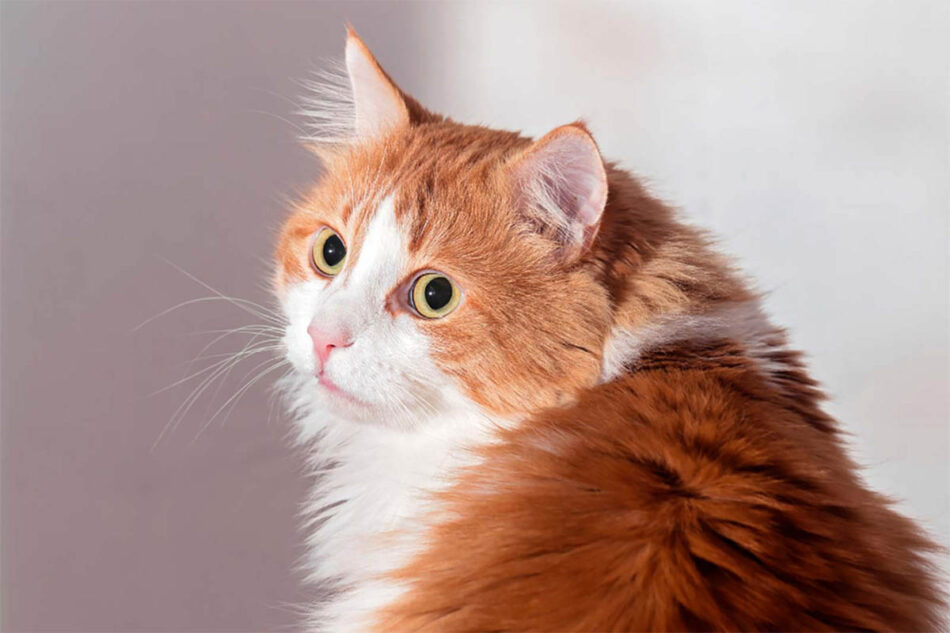
24 Cat Anxiety Symptoms You Need to Know
No matter how often or how severely we’ve experienced anxiety, we can all agree on one thing – anxiety is deeply uncomfortable and can make us miserable.
Did you know that cats can experience anxiety, just like people? Cat anxiety is different from fear, which is a temporary sensation caused by an external threat. Even in cats, anxiety is defined as “the anticipation of future dangers from unknown or imagined origins that result in normal body reactions associated with fear.” What that means is that cat anxiety is an ongoing condition, one that takes a toll on your four-legged friend’s body and mind.
Thankfully, you can work with your veterinarian to find solutions that really work for your anxious cat. So, do you know how to tell if your cat is suffering from anxiety? And what can you do to comfort an anxious cat?
What Causes Cat Anxiety?
Unfortunately, cat anxiety may be more widespread than you’d expect. An estimated 50% of pets suffer from Fear, Anxiety, and Stress (FAS). Even though FAS is a common condition, many pet parents still struggle to get the help and support they need to recognize the signs of FAS and treat it effectively. Additionally, cats with FAS often go undiagnosed because their symptoms and signs can be subtle.
Pin Me!
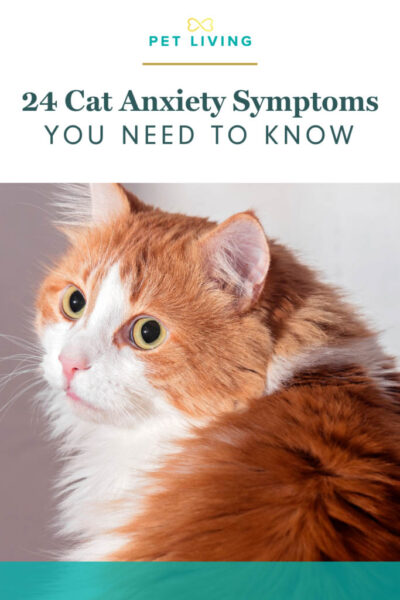
To help your feline friend recover, you’ll want to see if you can identify the cause of her ongoing anxiety. While separation anxiety is the most common form of anxiety in cats, many environmental, behavioral, and health factors may play a role in causing anxiety, including:
- Changes in her routine that can leave a cat with separation anxiety, like a pet parent going back to work after a long hiatus at home
- An unfamiliar environment, such as a new or remodeled house
- A new situation, such as the introduction of a new baby or household pet
- An illness, painful physical condition, or disease, such as hyperthyroidism
- Aging, which may lead to cat dementia or other nervous disorders
- A past traumatic experience, like abuse, neglect, abandonment, or prolonged confinement in a cage
- Not being socialized enough as a kitten
Sometimes, even breed can make a cat more or less vulnerable to anxiety. Of course, it’s not always possible to determine the exact cause of a cat’s anxious feelings. With careful observation and patience, though, you can learn to recognize an anxious kitty’s behavior and body language and alleviate the symptoms of anxiety.
24 Cat Anxiety Symptoms You Should Know
When you imagine a cat with anxiety, do you picture an angry, hissing cat scratching every curtain in the house? While some anxious cats might behave that way, often, a cat’s anxiety presents in much more subtle ways. However, although the signs might look subtle on the outside, any anxiety on the inside can cause severe distress to a cat.
Unfortunately, cat anxiety is much less likely to be diagnosed or recognized than anxiety in dogs. Veterinary behaviorist Dr. Lisa Radosta says that “cats have as much fear, anxiety, and stress (FAS) as dogs in the home environment. (But) cat owners are less aware of FAS because a hiding cat may not seem like a stressed cat to them.”
Are you a cat parent, or do you know someone who is? Pay attention to these 24 cat anxiety symptoms that can help you recognize whether your furry friend is silently (or not-so-silently!) suffering:
- Aggression
- Becoming less active
- Clinginess
- Destructive behavior, like inappropriate scratching
- Diarrhea
- Dilated pupils
- Eating or drinking too fast
- Failure to use the litter box
- Freezing in place
- Hair loss from excessive grooming
- Hair standing up
- Hiding
- Hypervigilance
- Increased vocalization
- Increased respiratory rate
- Not eating or drinking
- Pacing
- Panting
- Salivation
- Social withdrawal
- Submission
- Trembling
- Twitching tails or ears
- Vomiting
Do any of these signs sound familiar to you? Pet parents often first notice signs of cat anxiety when a cat is between five months and one year old. Sadly, those anxieties usually worsen, or new fears may develop when a cat is between one and three years old.
If your cat is suffering from anxiety, don’t lose hope! There is so much you can do to improve your feline friend’s quality of life.
Help for Cats with Anxiety
If your cat is showing any anxiety symptoms, the first thing you should do is make an appointment with your veterinarian. He or she will work to rule out medical conditions that could be contributing to your cat’s symptoms. Your veterinarian will also be able to help you find the right treatment plan for your cat’s needs.
However, finding an effective treatment for your cat’s anxiety might take some trial and error. Every cat is different, so a solution that works for one kitty might not work for another. You may also have to take several approaches when treating a cat with anxiety, combining environment management, supplements, and maybe even cat anxiety medication.
Of course, the most important thing is that you keep trying to help your cat. If left untreated, feline anxiety is likely to get worse. However, there’s plenty you can do for your anxious kitty — and you can get started on helping her today, without even leaving your house!
What to Do When Your Cat Is Anxious
If your cat is actively showing signs of anxiety, there are a few things that you, as a pet parent, can do to help soothe her fears. Take a look at these do’s and don’t’s for pet parents of anxious cats:
- Don’t ever punish an anxious cat by yelling or squirting her with water. Punishment will only reinforce the fear she’s feeling and make her anxiety even worse. Instead, if she lets you, do try comforting her with a soft voice and gentle strokes.
- Don’t try to confine her, but do offer a safe space she can retreat to, like a cardboard box, a cat tree, or an anti-anxiety crate or carrier. A cat anxiety vest, like ThunderShirt for cats, can also help her feel safe and calm, giving her a “portable safe space” wherever she goes.
- If your cat’s anxiety is caused by a change in routine or a new arrival in the home, do try offering her treats when she confronts the scary situation. For example, if your cat has separation anxiety, give her a favorite treat before you leave the house.
| Image | Product | Features | Price |
|---|---|---|---|
 |
| Buy On Amazon | |
 |
| Buy On Amazon |
Additionally, even when your cat isn’t acting anxious, here’s what you can do to keep her environment as calm, stable, and anxiety-free as possible:
- Stick to a predictable feeding routine every day
- Clean the litter box more often
- Provide regular playtime and enrichment
Naturally, though, not all anxious cats will feel better immediately. If your cat is still anxious, even after your best attempts to calm her and optimize her environment, you might need to try another solution.
Natural Cat Anxiety Remedies
You should never give your cat human anti-anxiety medication without first checking with your veterinarian. Asking your veterinarian for cat anxiety medication is always an option, but you may first want to explore natural solutions like pheromones and supplements.
Pheromone Diffusers
Did you know that cats communicate with each other using odorless messages they release into the air? Those messages are called pheromones, and they’re a natural, drug-free solution to cat anxiety.
By copying the “happy messages” that cats send, FELIWAY diffusers can help your cat to feel calm no matter what’s going on around them. All you have to do is plug the diffuser into the wall and watch your cat relax!
Calming Oils
Another way to help your cat calm down naturally is by giving her hemp oil. Oils from the hemp plant stimulate serotonin receptors in the brain, naturally stabilizing and improving a cat’s mood.
This Hemp CBD Oil from ElleVet Sciences is designed especially to soothe anxious cats. The easily digestible formula also helps to promote brain function, reduce joint discomfort, and boost your cat’s immune system.

Zylkene for Cats
If behavioral remedies alone aren’t providing sufficient relief, Zylkene may be just the right choice for your cat. Zylkene is an over-the-counter supplement designed to calm your cat and is available without a prescription.
Using a calming, lactose-free natural milk protein, Zylkene can help your cat maintain her normal and relaxed disposition, even in situations that could otherwise trigger anxiety. And, unlike some treatments for anxiety, Zylkene doesn’t cause drowsiness, so your cat will remain alert but calm without feeling sedated.
It’s also easy to administer, even to picky cats. Simply open up the capsule and sprinkle the contents on your kitty’s food.
For more information on Zylkene, check out the article Why I Love Zylkene for Pet Anxiety.
Talk to Your Veterinarian
If your cat is still suffering from anxiety after a fair amount of trial and error with natural solutions, it’s a good idea to talk to your veterinarian about prescription cat anxiety medication. As long as your cat is on medication, your veterinarian will want to follow up with periodic blood tests to monitor your cat’s response to the prescription.
I highly recommend pet insurance to help defray the cost of treating your cat’s anxiety. I use Embrace Pet Insurance and absolutely love it! Aside from regular insurance, Embrace also offers a Wellness Rewards Program that reimburses you for regular wellness visits and other everyday pet care costs.
Remember: as a pet parent, you are your cat’s best advocate. With a little research, some trial and error, and help from your veterinarian, I’m confident that you have the power to provide relief to your anxious cat.



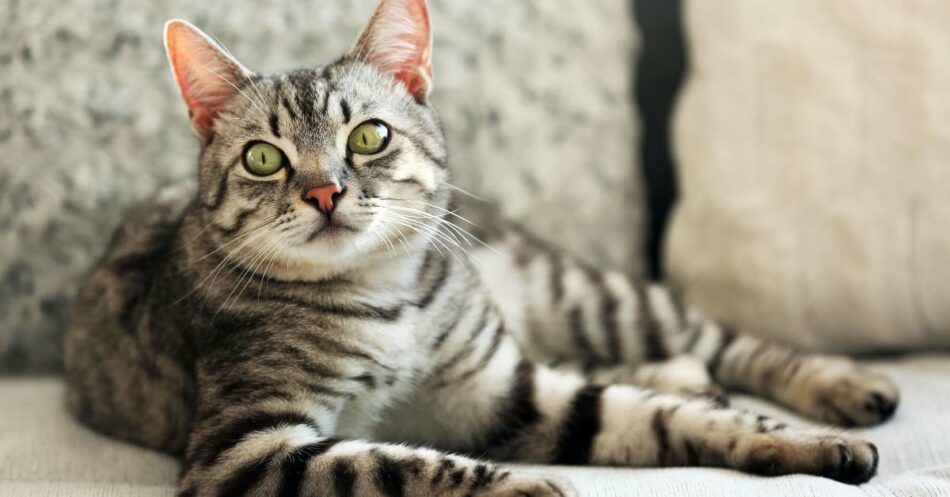
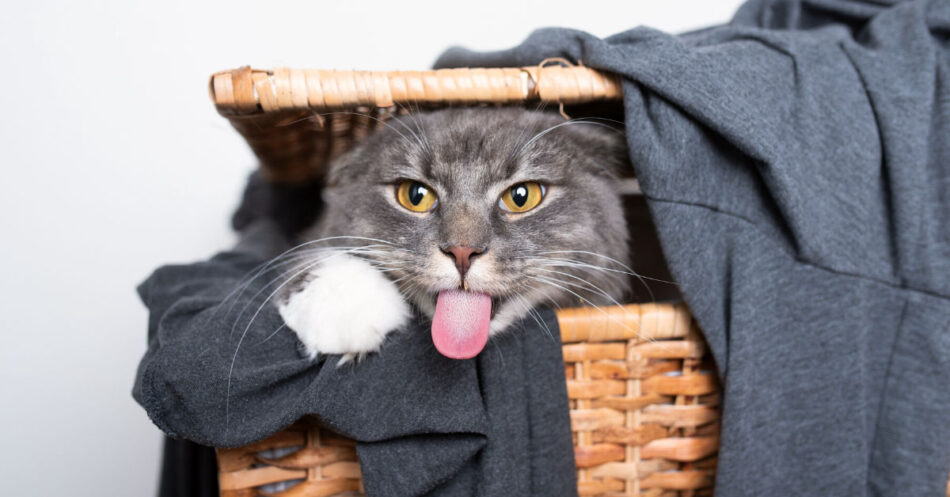
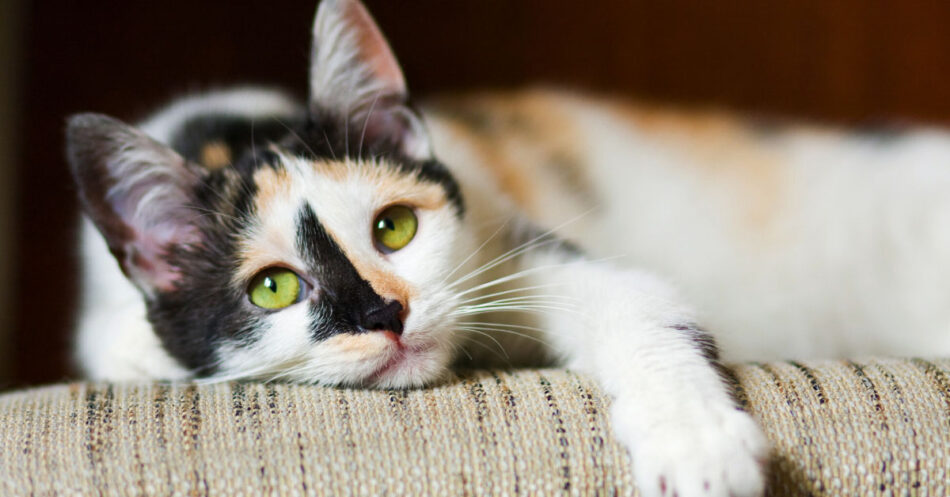
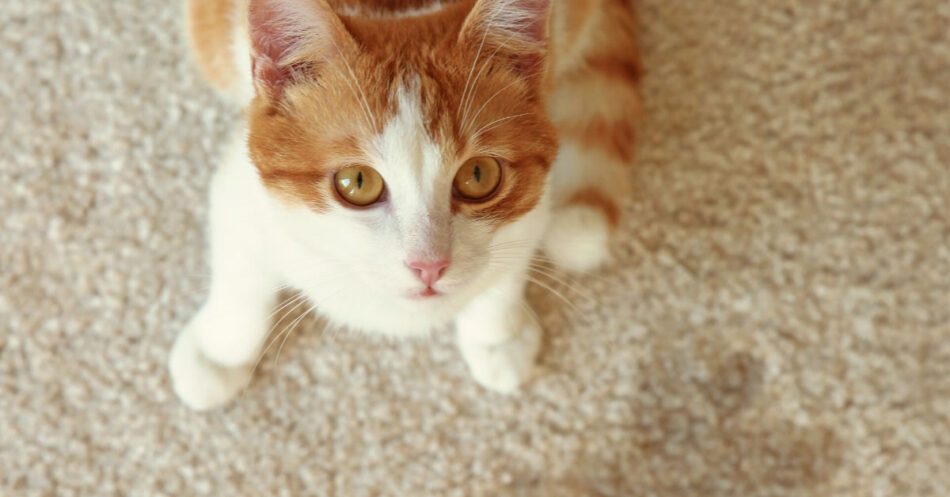
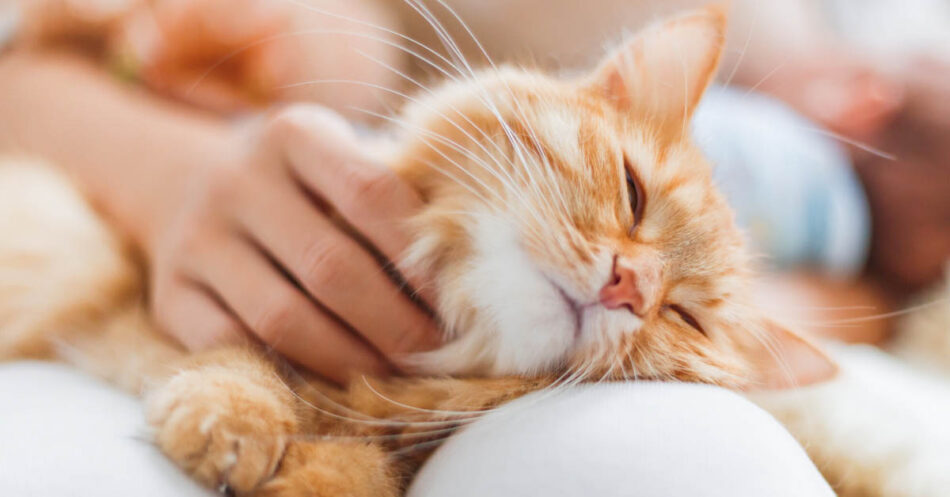
I agree with this entirely, I
Have a 17 year old furry feline friend and Within her life time she’s lost 2 of her best friends – my mom 8
Years ago 2012 (she basically went to the hospital and never came back)
and my dad last summer 2020 and they were both home most of the time so she was never alone. The first time I got home after dark I felt so horrible because she had never been left in the dark. I have been packing up our Family home to move now that my parents are gone and that’s stressful for her too. We do keep classical FM playing in our kitchen all day and I did get timers for the lights
So she’s not in the dark. I discovered a couple years ago “relax my pet or cat or dog” albums can be downloaded on iTunes or streamed on YouTube. I play it for my cat when we drive to the vet and I insist they take my phone so the music can be something to focus on. They have music for anxiety, illness, sleep and there’s lots of it but introduce it to them nicely. It is a lifesaver. If you search “videos for cats or dogs to watch with no adds” you can litterally entertain them that way as well it’s usually wildlife birds ducks squirrels but it can be 1-12 hours worth of something for them to watch while you’re busy. Mind the volume for your pets sake. They sell pet beds and jackets for anixious animals on Amazon and I recently found a brilliant mesh style crate for bringing your pet outside or for your pet to retreat indoors (outdoors must be supervised. And lastly heated blankets really help. Doesn’t matter if it’s for humans or pets they have timers 3-10 hours and different temperatures. If you get a blanket your cat can snuggle with you and if their geriatric like mine it helps with arthritis. Just don’t go doping your pet up, comfort yes but anything else can have consequences like falls and then what?! If your can contact a pet communicator (I had 2 readings for my cat to compare authenticity)
But maybe they can help you too. Whatever you do – treat your pet as you would want to be treated – with compassion and love, let them be happy and give them their dignity. And if you can’t do that then find them a home with someone who can. It floors me that people discipline pets- if you want something to stop- stop
Giving it attention and above all YOU picked them so it’s your duty to give them a good life for karma is as real as a heart attack. At the end of the day, just because you can have a pet doesn’t mean you should, so many people drive and they shouldn’t or have kids and they shouldn’t. Treat your pet like you would want to be treated and pay attention to them so you can find out about an issue before it’s too late. A pet isn’t like a pair of shoes good today and forgotten tomorrow. Be a good pet owner or don’t own a pet, it’s a HUGE commitment and they have needs big and small from a toy and a treat to illnesses that may cost you money. My cat has asthma and high blood pressure and like a car they don’t show issues on demand to a vet, monitor, record, research, investigate for if you forsake that soul you promised to love forever they will break your heart. That is if you love them. That’s my 25 cents worth. Go big or go home. All in or all out – anything worth having is work if it weren’t everyone would have it. Good luck.